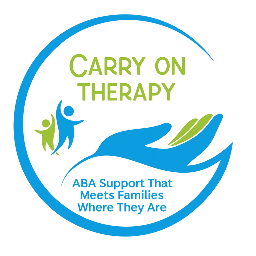Introduction to Parent Involvement in ABA Therapy
Applied Behavior Analysis (ABA) therapy stands out as one of the most effective, evidence-based approaches to managing behavioral issues, particularly in children with autism spectrum disorder. Central to its success is the vital role parents play, not just as observers but as active participants and advocates in their child's therapeutic journey. This article explores how parent guidance enhances behavioral management, enabling families to nurture meaningful progress and improve quality of life.
Understanding ABA Therapy and Its Core Principles
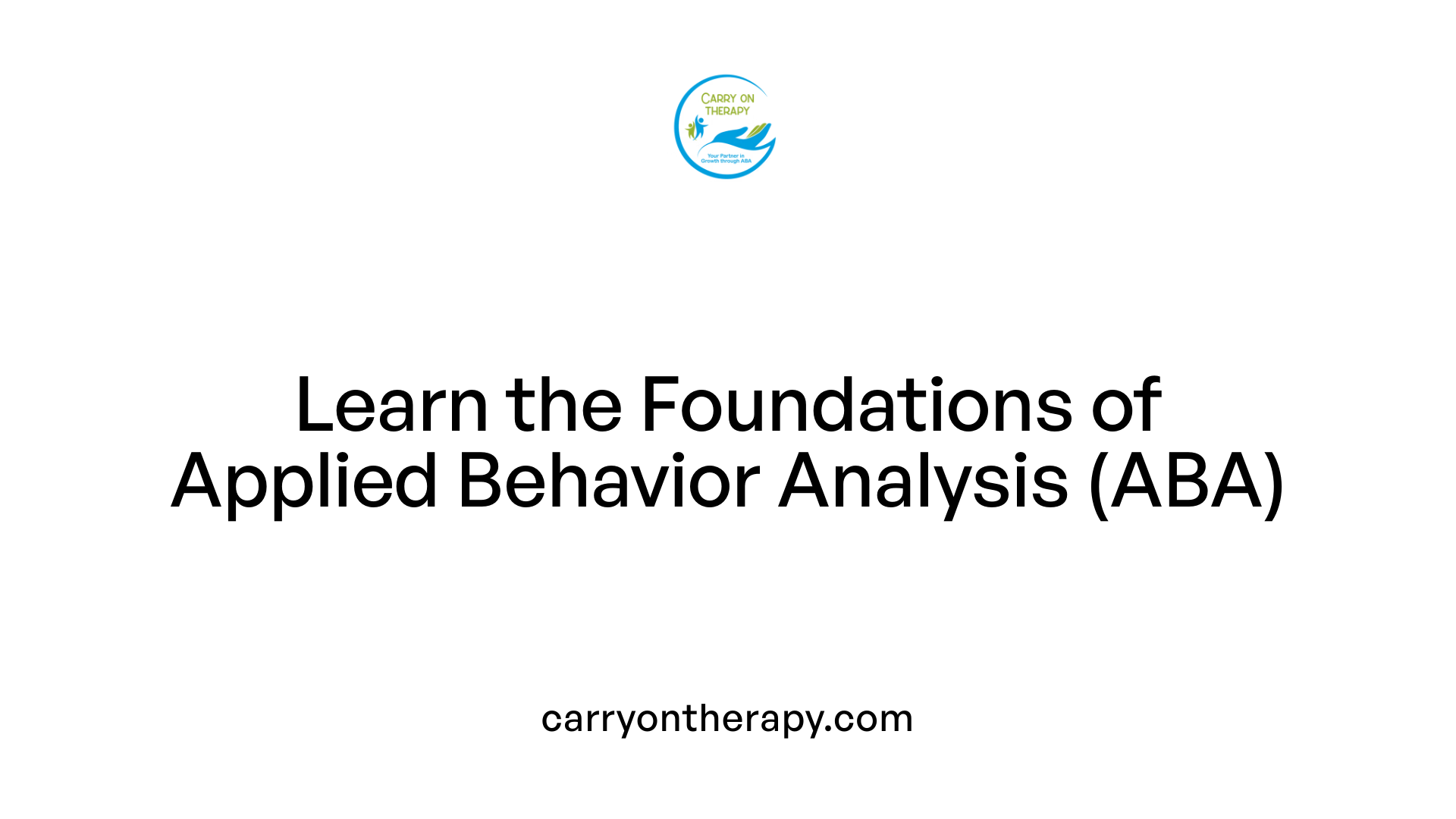
What is applied behavior analysis (ABA) therapy?
Applied Behavior Analysis (ABA) therapy is a scientifically grounded approach that applies the principles of learning and behavior to improve a wide range of skills. It is designed primarily for individuals with Autism Spectrum Disorder (ASD) but can also support others with developmental challenges. At its heart, ABA focuses on encouraging positive behaviors through structured methods while reducing harmful or interfering behaviors.
What are the goals of ABA therapy?
The primary aims of ABA therapy are to increase useful and desired behaviors—like communication, social interaction, and daily living skills—and to decrease behaviors that negatively impact learning or social engagement, such as aggression or self-injury. By targeting skills like attention, memory, academic ability, and emotional regulation, ABA supports individuals to become more independent and improve their overall quality of life.
What is the scientific basis and recognition of ABA?
ABA is widely recognized as an evidence-based best practice treatment by authoritative organizations, including the American Psychological Association and the U.S. Surgeon General. Research validates its effectiveness, particularly when started early and implemented intensively. Ongoing data collection and professional supervision ensure treatments remain tailored and effective over time.
What are the key techniques used in ABA?
ABA encompasses several proven techniques:
- Discrete Trial Training (DTT): A highly structured approach offering repeated teaching trials with clear prompts and reinforcement.
- Incidental Teaching (Natural Environment Training): Learning within everyday settings to encourage spontaneous use of skills.
- Verbal Behavior: Focusing on functional communication skills.
- Pivotal Response Training (PRT): A play-based method emphasizing motivation and self-initiated behaviors.
- Natural Language Paradigm: Teaching language through natural interactions and routines.
These methods rely heavily on positive reinforcement strategies, where desirable behaviors are rewarded to promote their recurrence, and careful data tracking to monitor progress.
ABA programs are personalized and guided by qualified professionals such as Board Certified Behavior Analysts (BCBAs) who collaborate closely with families to maximize effectiveness. This individualized, data-driven, and supportive approach makes ABA a leading therapy for enhancing skills and behavior in children and adults with autism and related developmental issues.
How ABA Therapy Supports Children with Autism and Behavioral Challenges
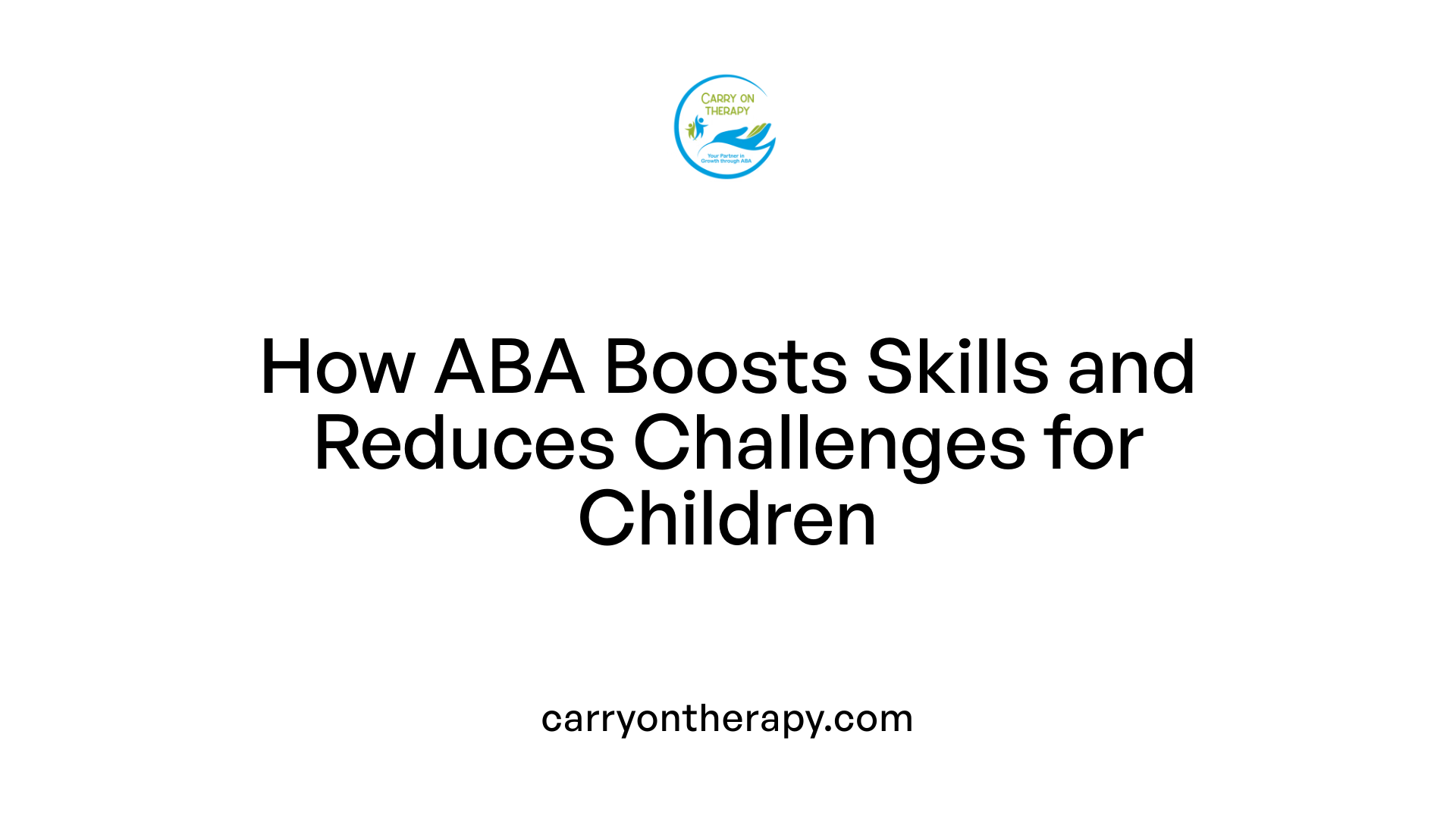
What Are the Benefits of ABA Therapy?
ABA therapy offers a wide range of benefits for children with autism and other developmental challenges. It improves communication and language skills, social interactions, attention and focus, as well as academic abilities. Additionally, ABA helps reduce problem behaviors such as aggression, tantrums, and self-injury, thereby enhancing overall quality of life for the child and family.
Which Behaviors Does ABA Target for Improvement?
ABA therapy targets both increasing positive or useful behaviors and decreasing harmful or interfering ones. This includes teaching essential life skills such as eye contact, understanding social cues, self-care routines, and independence in daily activities. The focus extends to improving reading, memory, and adaptive learning skills, tailored to each child's specific needs and developmental level.
How Does Reinforcement and Individualized Planning Play a Role?
Positive reinforcement lies at the heart of ABA therapy—desired behaviors are rewarded to encourage repetition. Therapy programs are highly individualized, with detailed treatment plans designed by qualified professionals like Board Certified Behavior Analysts (BCBAs). These plans are based on thorough behavioral assessments and constantly updated through systematic data collection to ensure progress.
Why Is Early and Intensive Intervention Important?
Research strongly supports early and intensive ABA intervention for producing the best outcomes. Starting therapy soon after diagnosis and maintaining consistent, frequent sessions help children develop critical skills faster and more effectively. This approach harnesses the brain’s plasticity during early development and incorporates family involvement to practice and generalize learned skills in real life.
ABA therapy is a scientifically validated, evidence-based approach that systematically supports children with autism by shaping positive behaviors, reducing difficulties, and promoting independence through personalized and data-driven methods.
The Critical Role of Parents in ABA Therapy
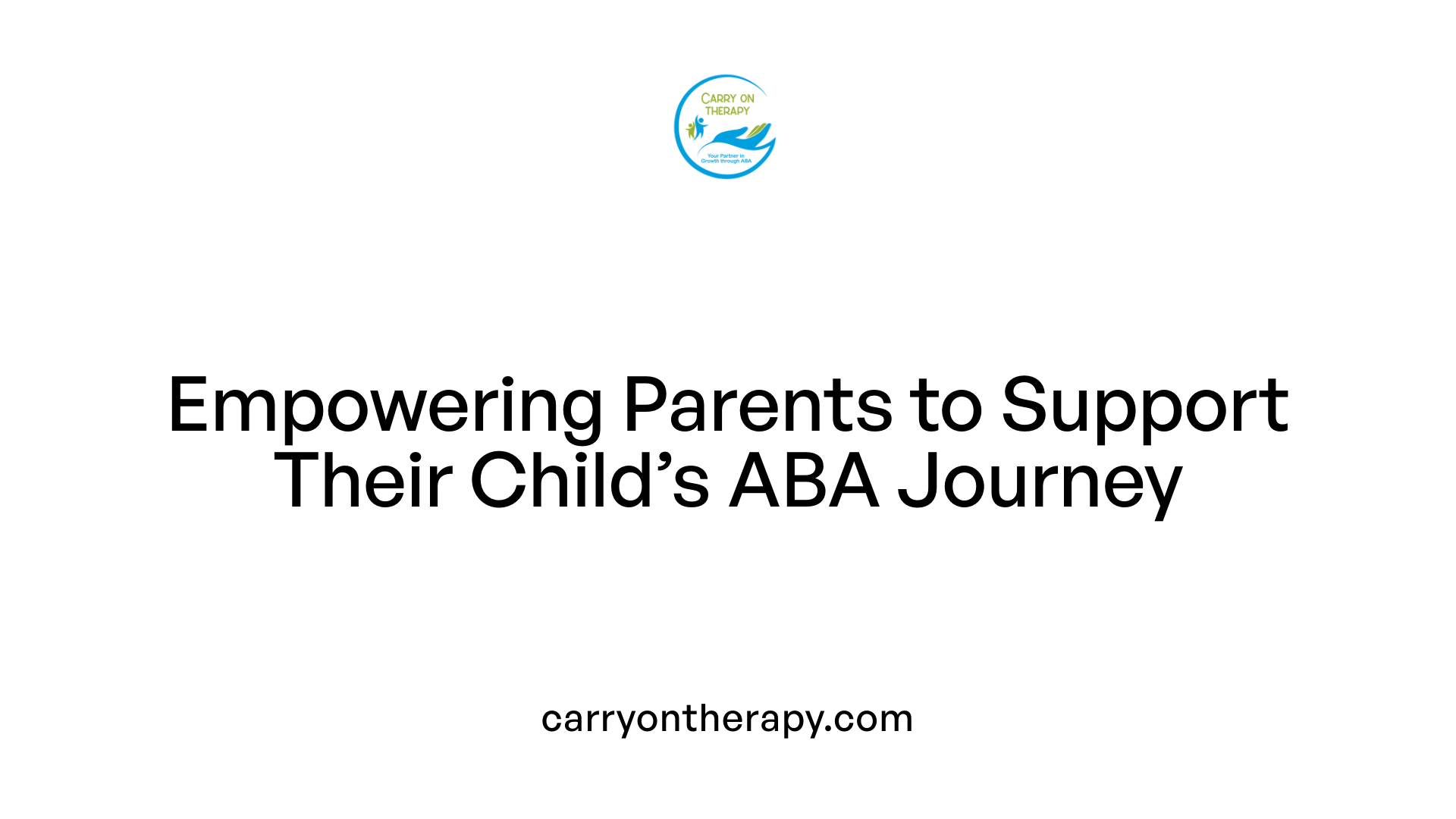
Why is parent involvement crucial during ABA therapy sessions?
Parents play a vital role in ABA therapy by actively participating in sessions alongside therapists. This involvement helps ensure that the child's strategies are consistently reinforced, creating a seamless learning experience that bridges therapy and home life. Engaged parents collaborate with Board Certified Behavior Analysts (BCBAs) and Registered Behavior Technicians (RBTs), offering insights into the child's progress and challenges, and supporting data collection for tailored therapeutic adjustments.
How can parents be educated and trained in ABA principles?
Education is foundational for effective parental involvement. Workshops, training sessions, and regular meetings with ABA professionals equip parents with a clear understanding of behavioral principles like positive reinforcement and data-driven strategies. This knowledge empowers them to become effective advocates and active participants in their child's developmental journey.
What are practical ways for parents to implement ABA strategies at home?
Implementing ABA techniques in daily routines enhances therapy outcomes. Parents can:
- Use visual schedules and predictable routines to provide structure.
- Apply positive reinforcement by rewarding desired behaviors promptly.
- Integrate skill-building activities, such as communication practice or social interaction exercises, into everyday tasks.
- Maintain a progress journal to celebrate small steps and adjust approaches as needed.
How does creating a supportive home environment enhance ABA results?
A nurturing atmosphere with consistent routines, positive encouragement, and visual supports creates a safe space for children to apply and generalize new skills. Additionally, balancing structured learning with opportunities for play and emotional expression addresses both developmental and emotional needs, making therapy more holistic and effective.
Parental commitment, education, and active collaboration with therapists not only maximize the benefits of ABA therapy but also foster a supportive, enriching environment crucial to a child's continued growth and success.
Qualifications and Roles of ABA Therapy Providers

Who typically provides ABA therapy?
ABA therapy is primarily delivered by trained professionals specializing in behavior analysis. The most recognized experts are Board Certified Behavior Analysts (BCBAs) who design, supervise, and customize therapy programs tailored to each child's unique needs. Registered Behavior Technicians (RBTs) often provide the day-to-day therapy sessions under the close supervision of BCBAs. Many clinics also employ additional therapists and support staff trained in ABA techniques to support the overall treatment plan.
What qualifications should ABA therapy providers have?
ABA therapists should hold certifications such as BCBA for analysts or RBT for technicians. These certifications indicate rigorous training and competence in applied behavior analysis principles. Typically, providers have a bachelor’s or master’s degree in psychology, education, or related fields, supported by extensive hands-on experience working with children with autism or developmental challenges. Ethical practice, strong communication, empathy, and the ability to think critically about behavior interventions are important capabilities for effective therapy delivery.
Importance of qualified providers for effective therapy
Qualified providers ensure ABA therapy is scientifically sound, individualized, and ethically administered. Their expertise allows for accurate behavioral assessments, data-driven treatment plans, and ongoing adjustments based on progress. A knowledgeable BCBA can make informed clinical decisions that dramatically improve outcomes while ensuring the child's well-being and family values are respected.
Collaboration between therapists and families
Successful ABA therapy relies on teamwork between therapists and families. Providers actively involve parents through training, coaching, and regular communication. This partnership helps reinforce strategies at home and maintains consistency in learning environments. Family engagement empowers caregivers to support their child’s progress, creating a supportive network essential for meaningful and lasting improvements in behavior and skills.
Techniques and Strategies in ABA Therapy Parents Should Know
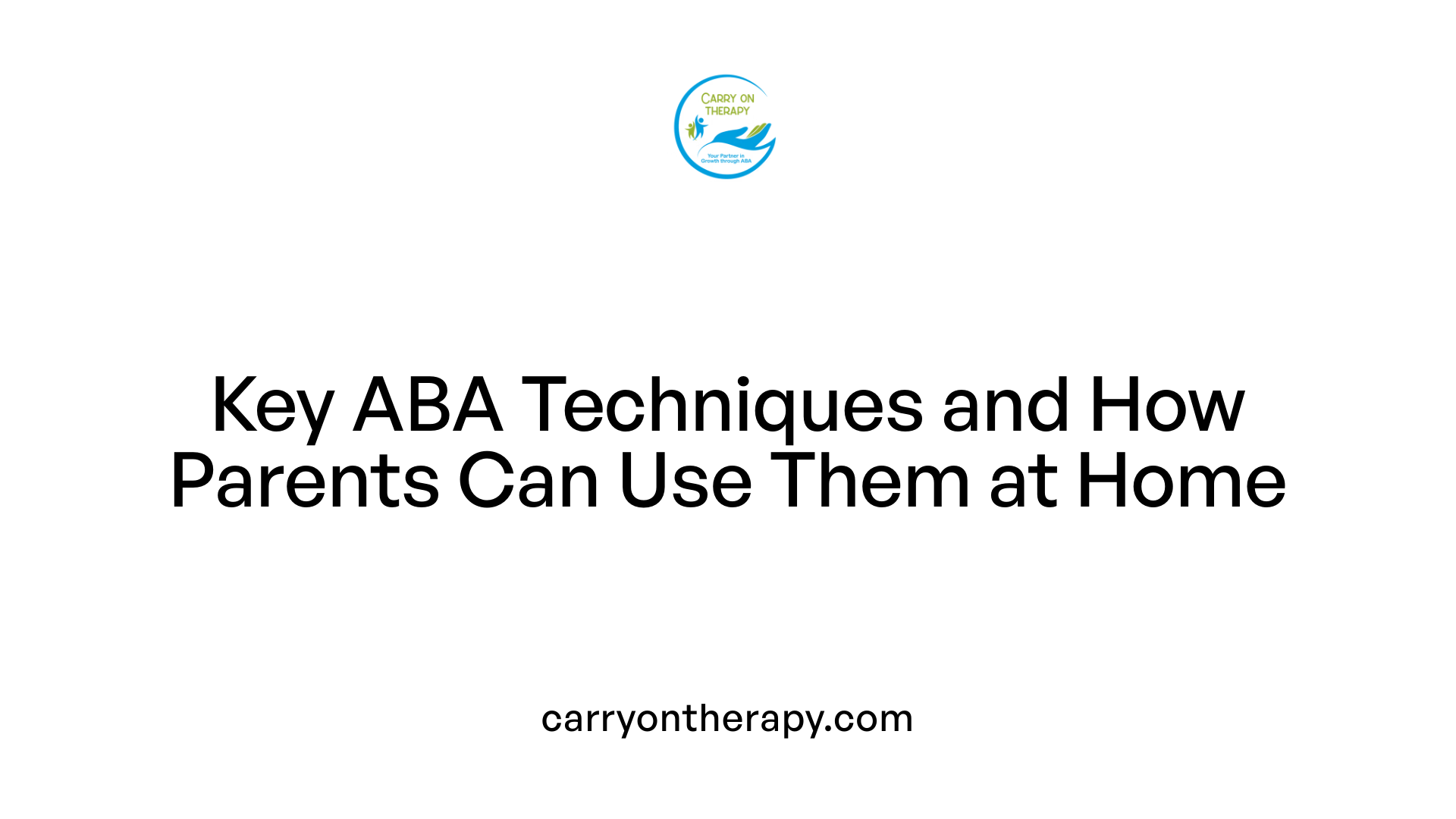
What are the common techniques used in ABA therapy?
ABA therapy uses several structured approaches designed to teach new skills and reduce challenging behaviors for children with autism and other developmental challenges.
One widely used technique is Discrete Trial Training (DTT). DTT involves breaking down skills into small, manageable parts and teaching each step through repeated, structured trials. This method provides clear expectations and immediate reinforcement for correct responses.
Natural Environment Training (NET) focuses on teaching skills in everyday settings, using natural opportunities like play and daily routines to encourage learning in context. This approach helps generalize skills outside the therapy environment.
Behavior Chaining breaks complex tasks into smaller steps that the child learns sequentially, linking each step to build a complete behavior or routine.
ABA therapists utilize positive reinforcement extensively, rewarding desired behaviors to increase their frequency. Alongside reinforcement, prompting techniques help guide the child toward the correct response, with a goal of gradually fading prompts to encourage independence.
Functional Behavior Assessments (FBA) play a critical role in understanding the reasons behind challenging behaviors. By analyzing the antecedents and consequences (the ABC model), therapists can tailor interventions to address the child’s specific needs.
Data collection is another cornerstone of ABA therapy. Therapists continuously monitor and record the child's responses and progress, using this information to adjust treatment plans and ensure effective outcomes.
Overall, these techniques combine to create individualized, evidence-based interventions that help children develop crucial social, communication, and daily living skills in a meaningful and measurable way.
Achieving Outcomes: Expectations and Challenges for Families

What kind of outcomes can families expect from ABA therapy?
ABA therapy offers families the hope of meaningful progress in various essential areas of their child's development. Improvements are often seen in communication skills, social interactions, attention span, and adaptive daily living abilities. Many children experience significant reductions in challenging behaviors such as aggression, self-injury, and temper tantrums. These positive changes can range widely but have been reported to reach as high as 80-100% reduction in some cases. Language development, emotional regulation, and academic readiness also tend to improve with consistent, individualized ABA programs.
Why is parental guidance important in reinforcing progress?
Parental involvement is a cornerstone of successful ABA therapy. Parents and family members who actively participate in therapy sessions, learn ABA principles, and consistently apply strategies at home help solidify the child’s progress. Techniques such as positive reinforcement, visual schedules, and structured routines are most effective when supported by caregivers in daily environments. Ongoing communication with therapists, attending training workshops, and maintaining a collaborative relationship ensure that therapy goals are reinforced beyond clinical settings.
How can families manage challenges and setbacks during ABA therapy?
Challenges during ABA therapy, such as plateaus or behavioral setbacks, are common and can be addressed through teamwork and problem-solving strategies. Maintaining flexibility and a positive attitude is vital, as is collaborating closely with the ABA team to adjust treatment plans as needed. Families benefit from peer support groups and therapist guidance to navigate difficulties, ensuring continuity and motivation throughout the therapy journey.
What emotional support and self-care should parents consider?
Caring for a child undergoing ABA therapy can be demanding, making parental well-being crucial. Parents are encouraged to prioritize self-care activities and seek support from dedicated groups to sustain their emotional health. Balancing structured therapy with opportunities for play and emotional expression benefits not just the child but the entire family dynamic. Celebrating small victories and keeping a progress journal can also uplift spirits and motivate continued effort.
| Aspect | Description | Benefit to Family and Child |
|---|---|---|
| Expected Improvements | Gains in language, social skills, and behavior management | Enhanced independence and quality of life |
| Parental Involvement | Active participation and reinforcement at home | Strengthened skill retention and consistent progress |
| Managing Setbacks | Collaboration with therapists and flexible approaches | Sustained motivation and adaptive treatment adjustments |
| Emotional Support for Parents | Access to support groups and self-care strategies | Improved resilience and wellbeing for caregivers |
Conclusion: Strengthening Behavioral Progress Through Parent-Therapist Partnerships
The success of managing behavioral issues through ABA therapy relies heavily on active and informed parent involvement. With guidance on ABA principles, collaboration with qualified professionals, and embrace of evidence-based strategies, families become empowered advocates in their child's development. Navigating challenges with patience and maintaining a supportive home environment enhance the effectiveness of therapy, unlocking lasting improvements in communication, social skills, and independence. For parents, investing time in education and self-care is as critical as the therapy itself, ensuring resilience throughout the journey. Together, parents and therapists form a unified team, making meaningful strides toward better behavioral outcomes and enriched quality of life.
References
- Parent's Guide to Applied Behavior Analysis for Autism
- Supporting a Child in Applied Behavior Analysis (ABA) ...
- The Ultimate Parent's Guide to ABA Therapy
- Getting Started with ABA Therapy: A Parent's Guide
- What is ABA Therapy? A Guide for Parents
- Autism Behavior Management: a Parent's Guide
- ABA Techniques: Strategies for Behavior Analysts - GSEP Blog
- ABA Therapy Examples, Definition & Techniques
- Applied Behavior Analysis (ABA)
You have to Start to be Great!
